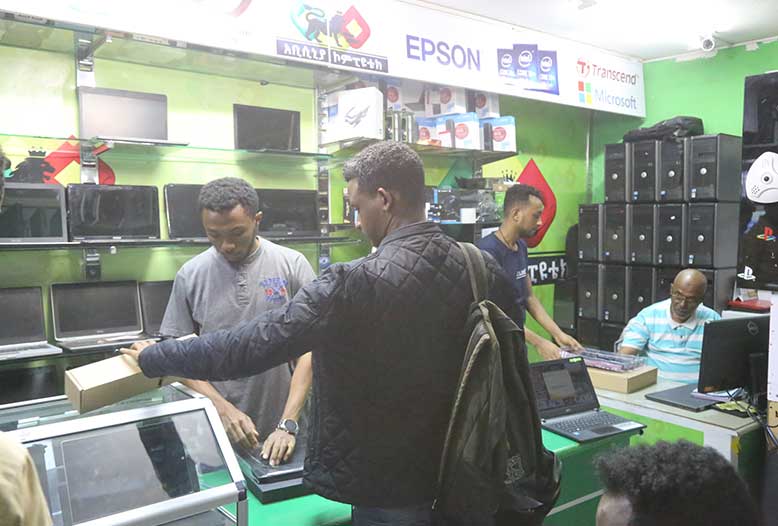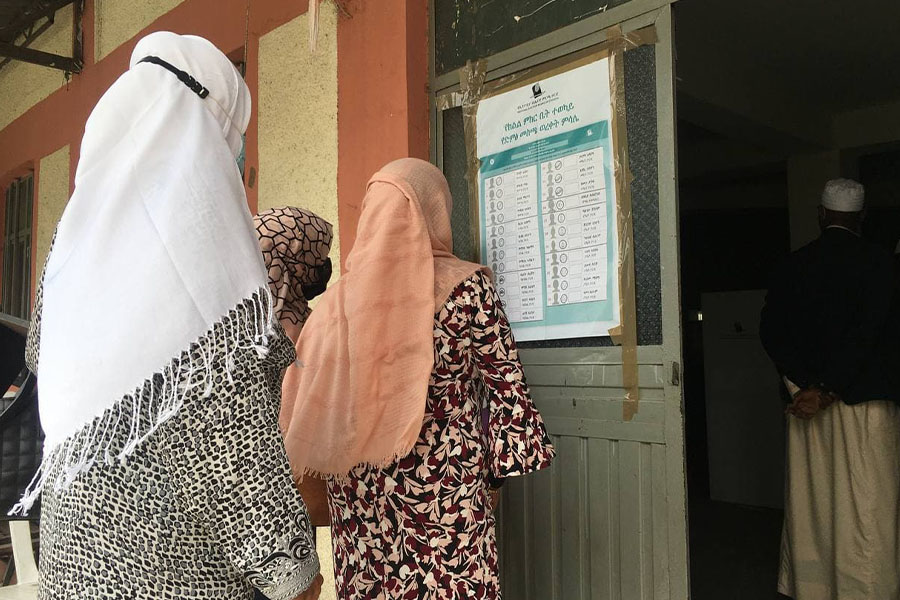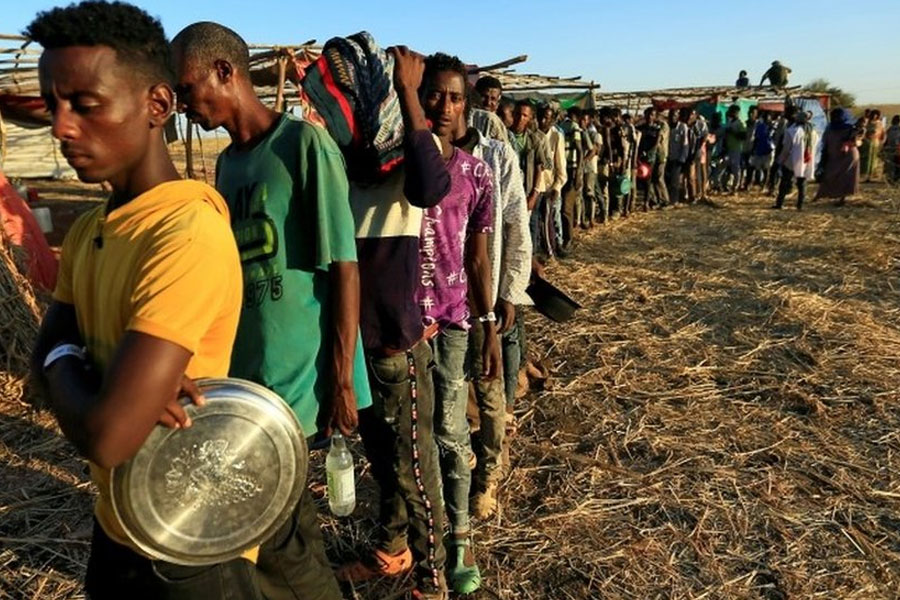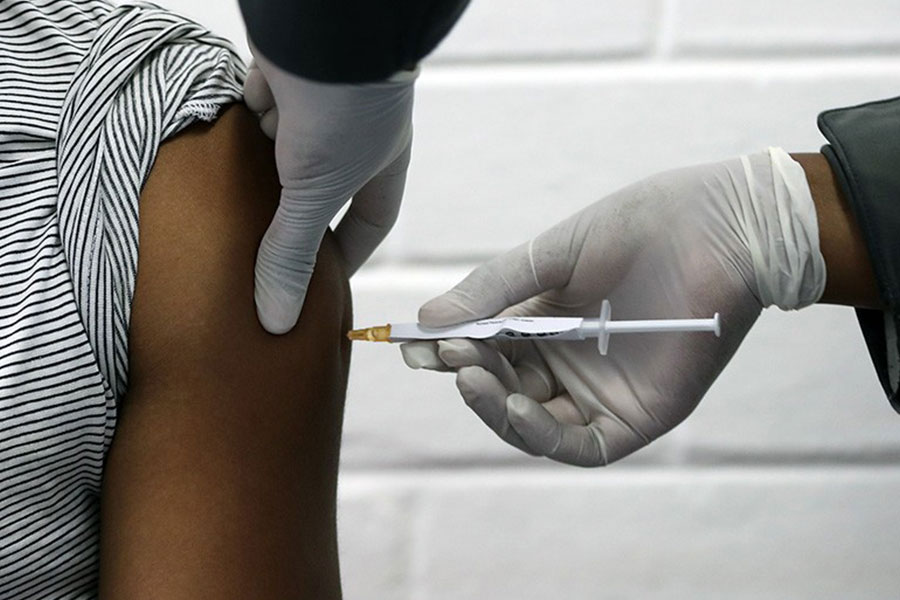
Agenda | Sep 28,2019
A consortium of agrochemical importers has pleaded with central bank authorities for an extension of waivers on commission fees paid to prolong letters of credit (LCs) and cash against documents (CAD) agreements for the third time in a year. The pleas come following months of uncertainty due to a global shortage of shipping containers. Lockdowns and travel restrictions have caused a slowdown in loading and unloading processes, creating disruptive shortfalls.
CropLife Ethiopia Agrochemical Association, formed in 1998 by six pesticide importers, represents multinational manufacturers and two dozen domestic importers. Its leaders have successfully petitioned the National Bank of Ethiopia (NBE) for waivers twice over the past year. Both requests were approved by Fikadu Digafe, vice governor and chief economist at the central bank.
"We're awaiting a response," Fasil Tadesse, general manager of the Association, told Fortune.
Commercial banks had agreed to extend the waivers on both occasions, but executives have pulled the plug in recent months. The last extension was valid until the end of January this year.
A further extension requires approval from the central bank, according to Tadelech Shiferaw, director of international banking at Enat Bank.
A refusal from regulators would leave the importers to face penalties from their respective banks due to the expiration of letters of credit and CAD deadlines. The industry lobby group has also been pleading its case to officials at the Ministry of Agriculture over the past couple of months. Two weeks ago, the Ministry showed its solidarity with a supporting letter addressed to the central bank. Sofia Kassa (PhD), a state minister for Agriculture, argued that the extension is necessary to supply agrochemicals to farmers at reasonable prices.
Representatives of the National Bank of Ethiopia were unavailable for comment.
Fasil says the issues are not limited to the members of the Association.
“Most agrochemical importers are in a similar predicament," he said.
Close to 110 registered importers bring 40,000tn of agrochemicals annually.
Adami Tulu Chemical Company, the lone domestic manufacturer incorporated in 1998 with a capital of 40.5 million Br, produces 440tn of chemicals annually. It is nowhere near the demand from half of the 18 million smallholder farmers who used agrochemicals last Mehir season. Pesticides were used on less than a quarter of 22.8 million hectares of farmland.
BNYSE General Trading Plc is an importer that had opened a letter of credit with the state-owned Commercial Bank of Ethiopia (CBE) after depositing 750,000 Br. Two containers of chemicals the company ordered were scheduled to arrive three months ago. They have yet to arrive; the company's management attributes the delays to a shortage of shipping containers. Bayou Belayneh, the manager, blames increasing congestion at ports in Shanghai.
Ports in the coastal Chinese city have been running at half capacity as Chinese officials have imposed a citywide lockdown due to a resurgence in COVID-19 cases. The restrictions have created shortages in trucking services and labour.
To experts like Matiwos Ensermu (PhD), a logistics and supply chain management lecturer at Addis Abeba University, the problems arise partly as importers have to utilise the state-owned Ethiopian Shipping & Logistics Services Enterprise (ESLSE) to transport goods. The expert does, however, encourage importers to seek waivers that would allow them to use other shipping lines as a solution.
The Ethiopian Maritime Authority and the Ministry of Transport & Logistics can issue these waivers.
The Enterprise's executives have been hard pressed by impediments to the logistics sector brought on by the pandemic over the past two years.
Last year, the Enterprise acquired close to 6,000 shipping containers, increasing total stock to around 10,000 units. However, the shortfalls continue to haunt the Enterprise, run by Chief Executive Officer (CEO) Roba Megersa. He offered waivers to importers to use other shipping companies. However, the wavier applied only to ports where the Enterprise’s ships do not call, or it has no agents present.
Importers claim costs are on the rise due to surging fees for shipment. Blaming the shortage of containers, the Enterprise increased cargo tariffs by 40pc in February this year, the second adjustment since 2020. Shipping tariffs for 40ft containers cost 16,000 dollars, while importers pay around half for 20ft containers.
The ballooning shipping and inland transport costs are inevitably transferred on to consumers. Smallholder farmers are left carrying the burden of buying agrochemicals.
Abebaw Abebe is the general manager of Farmers Cooperative Federation operating in the Southwestern Regional State. The Federation represents over 400,000 farmers organised under 989 cooperatives.
Abebaw noted prices for agrochemicals have jumped by half over the last year, farmers pay 4,000 Br for a litre of pesticide.
PUBLISHED ON
May 21,2022 [ VOL
23 , NO
1151]

Agenda | Sep 28,2019

Fortune News | May 14,2022

Covid-19 | Jun 11,2021

Fortune News | Sep 30,2021

Delicate Number | Nov 20,2021

Radar | Jun 19,2021

Radar | Jun 12,2021

Advertorials | Sep 13,2021

Covid-19 | Jun 12,2021

Editorial | Feb 26,2022

Dec 22 , 2024 . By TIZITA SHEWAFERAW
Charged with transforming colossal state-owned enterprises into modern and competitiv...

Aug 18 , 2024 . By AKSAH ITALO
Although predictable Yonas Zerihun's job in the ride-hailing service is not immune to...

Jul 28 , 2024 . By TIZITA SHEWAFERAW
Unhabitual, perhaps too many, Samuel Gebreyohannes, 38, used to occasionally enjoy a couple of beers at breakfast. However, he recently swit...

Jul 13 , 2024 . By AKSAH ITALO
Investors who rely on tractors, trucks, and field vehicles for commuting, transporting commodities, and f...

Oct 25 , 2025
The regulatory machinery is on overdrive. In only two years, no fewer than 35 new pro...

Oct 18 , 2025
The political establishment, notably the ruling party and its top brass, has become p...

Oct 11 , 2025
Ladislas Farago, a roving Associated Press (AP) correspondent, arrived in Ethiopia in...

Oct 4 , 2025
Eyob Tekalegn (PhD) had been in the Governor's chair for only weeks when, on Septembe...